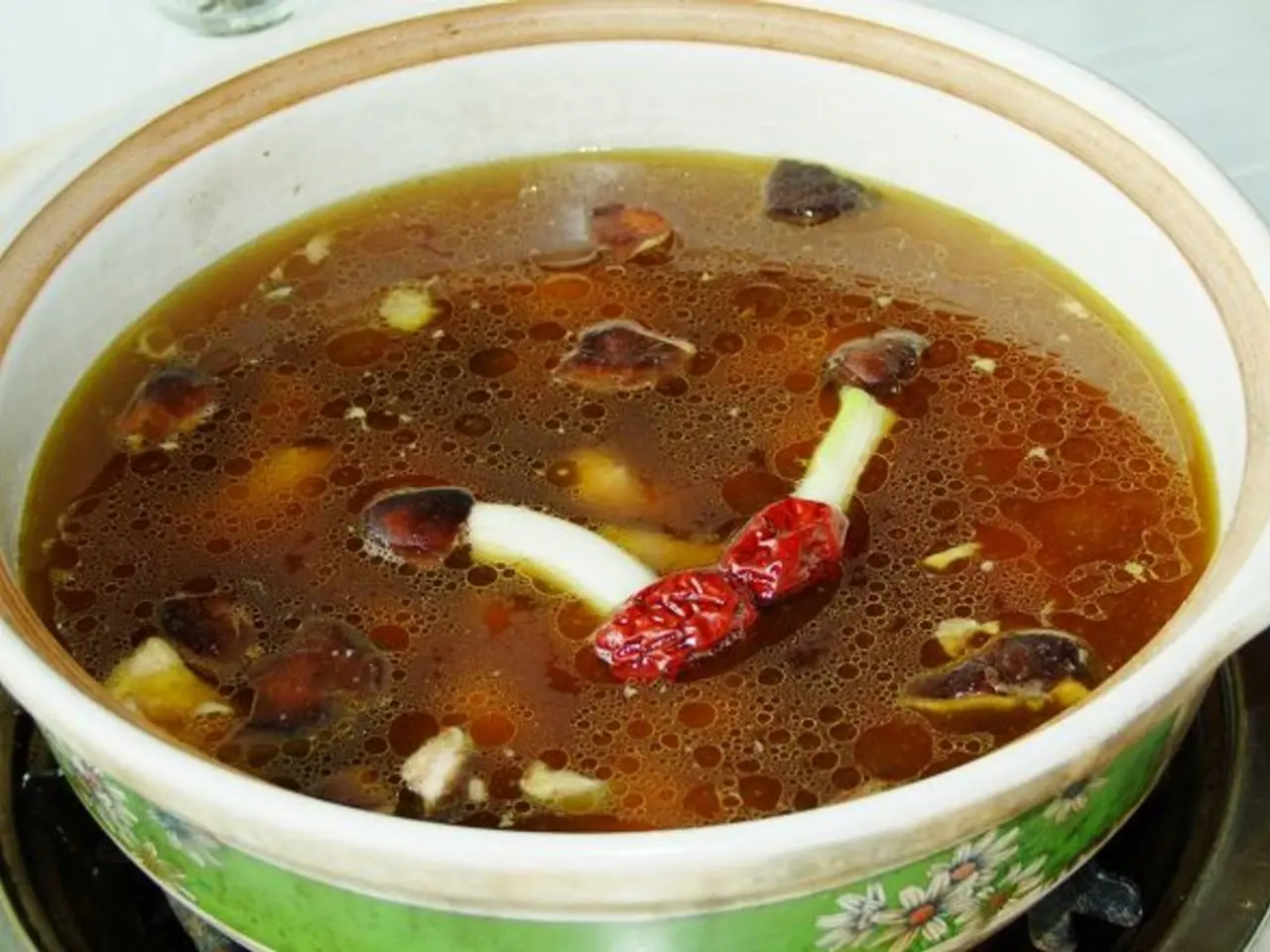Guide to Selecting Eco- Friendly Cooking Oils: Comprehensive Overview of Earth-Friendly Options
Discovering the Best Eco-Friendly Cooking Oils in the UK
In the realm of cooking oils, making informed choices is crucial. It's not just about nutritional profiles, but also about understanding environmental and ethical implications. Here's a guide to help you find the best eco-friendly cooking oils in the UK, with a focus on nutritional profiles, environmental impact, and sustainability credentials.
- Specialised UK Websites for High-Quality Cooking Oils
Websites like High Polyphenol Olive Oil UK provide detailed comparisons of extra virgin olive oils, focusing on their nutritional quality, such as polyphenol content—important antioxidants linked to health benefits. Brands like SP360 and ONSURI Arbosana offer high polyphenol levels and low acidity, indicating high nutritional value and long shelf life.
- Organic Extra Virgin Olive Oils
Organic extra virgin olive oils, such as The Governor Premium Unfiltered from Corfu, highlight both high antioxidant content (1800 mg/kg polyphenols) and sustainability practices (non-irrigated, chemical-free farming, cold-pressed extraction), along with certifications like DIO-Organic that confirm sustainable production.
- Certifications and Sustainability Labels
Organic certification and standards from EU or UK bodies ensure chemical-free production and often mandate environmentally low-impact farming methods, which are key for sustainability credentials.
- Research Platforms Comparing Nutritional Profiles
Seek sources that compare oils on polyphenols, acidity, and other health markers to identify the best nutritional profiles. Such comparisons may also include information about their production practices for environmental impact.
- Sustainable Packaging and Ethical Supply
Brands investing in refillable bottles or reduced packaging waste reduce environmental impact beyond cultivation. Exploring how producers package and distribute oils can offer insight into their sustainability.
- Ethical Consumer Guides
While primarily about energy, platforms like Ethical Consumer help you understand the UK’s market for eco-friendly products and might guide you toward brands that emphasize ethical and sustainable practices overall.
- Trade or Bulk Supply Sources Focused on Sustainability in Cooking Oils
Some industry blogs or suppliers, such as those discussing oriental oils for UK kitchens, deliberate on eco-friendly sourcing and sustainability in culinary oils used commercially, which can be informative for both nutritional and environmental impact perspectives.
In summary, start with UK experts and retailers specializing in high-polyphenol, organic extra virgin olive oils, as they lead in combining superior nutritional profiles with sustainable and organic farming practices. Verify certifications like organic or sustainability labels to ensure environmental credentials. Consider the foil packaging and refill systems to assess broader eco-friendliness. Use consumer ethical guides to validate claims and find trusted suppliers in the UK market.
Flaxseed oil, hemp seed oil, and rapeseed oil are rich in beneficial fats. The modern cooking oil market offers various options, including traditional olive oil and trendy avocado oil. Sesame oil, when sourced responsibly, offers unique flavour profiles and sustainability credentials, making it suitable for stir-fries and dressings.
Proper storage techniques for cooking oils include storing them in cool, dark places, using dark glass bottles or metal containers, and sealing containers tightly after each use. Purchasing British rapeseed oil during or shortly after harvest season often provides the best prices and freshness. Rapeseed oil, grown extensively across Britain, offers exceptional sustainability credentials with minimal food miles.
Organic oil production prohibits synthetic pesticides and fertilisers, promoting biodiversity and soil health. Trans fats, artificially created fats, should be avoided entirely as they can increase the risk of heart disease, stroke, and diabetes. British rapeseed oil represents the most locally sustainable option, with harvest typically occurring in late summer.
Monounsaturated fats, found in oils like olive oil, rapeseed oil, and avocado oil, help lower bad cholesterol levels and maintain good cholesterol, reducing the risk of heart disease. Cold-pressed oils undergo minimal processing, preserving natural nutrients whilst minimising energy use and chemical inputs during production.
Peanut oil (groundnut oil) is versatile and sustainable, particularly for higher-heat cooking applications like frying and roasting. Local production offers additional sustainability benefits by reducing transportation emissions and supporting domestic agriculture. Understanding oil labels is crucial for making informed, sustainable choices, with terms like "cold-pressed," "organic," "single-origin," and "British-grown" indicating environmental responsibility and quality.
Peanut cultivation can be relatively sustainable, particularly when grown using organic methods. Labeling oils with purchase dates helps track freshness, with some oils like flaxseed having shorter lifespans due to their high unsaturated fat content. In the UK, many sustainable options for cooking oils are readily available in shops, often at competitive prices. Extra virgin olive oil remains a cornerstone of healthy cooking, offering excellent monounsaturated fat content and distinctive flavours that enhance numerous dishes.
- Research Platforms for aggregated information on cooking oils' nutritional profiles and environmental impact are valuable sources, considering polyphenol, acidity, and sustainability factors.
- UK retailers like High Polyphenol Olive Oil UK offer a variety of high-quality oils, including certified organic extra virgin olive oils with superior nutritional profiles and sustainable farming practices.
- Investigating certifications and sustainability labels such as organic and DIO-Organic assure consumers of chemical-free production methods and environmentally low-impact farming, vital for sustainable oils.
- Consumers can find ethical consumer guides like Ethical Consumer that offer insights into the UK’s eco-friendly product market, including cooking oils, helping in the selection of brands emphasizing ethical and sustainable practices.
- Sustainability-focused industry blogs or suppliers, like those discussing oriental oils for UK kitchens, provide valuable information on eco-friendly sourcing and sustainability in culinary oils, enhancing the understanding of their nutritional and environmental impact.
- Brands that prioritize sustainable packaging, such as reduced packaging waste or refillable bottles, display environmental awareness and lower their impact beyond cultivation, contributing to overall eco-friendliness.
- Proper storage techniques for cooking oils, such as storing them in cool, dark places, using dark glass bottles or metal containers, and sealing containers tightly after each use, help preserve their nutritional value and freshness.
- Understanding oil labels is essential for making informed choices, with terms like "cold-pressed," "organic," "single-origin," and "British-grown" indicating environmental responsibility and quality, such as in local, sustainable options like British rapeseed oil.




